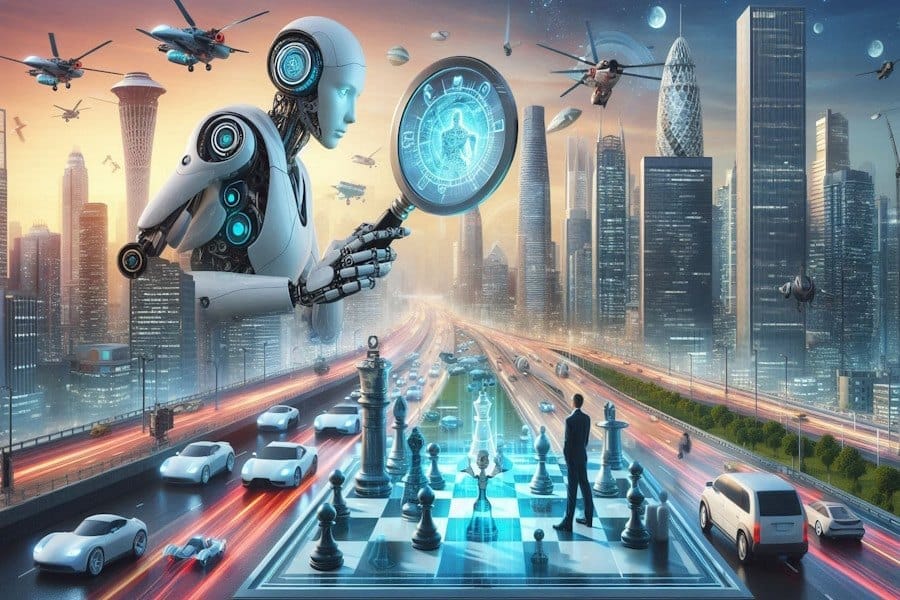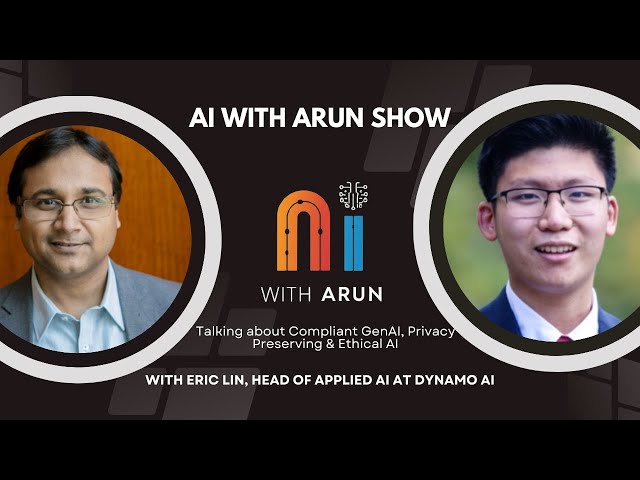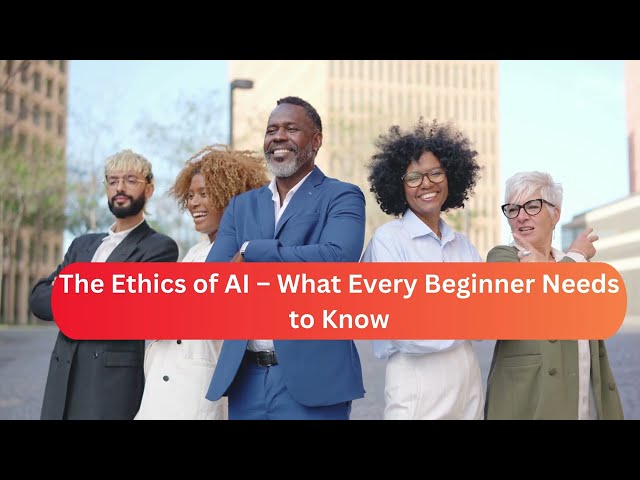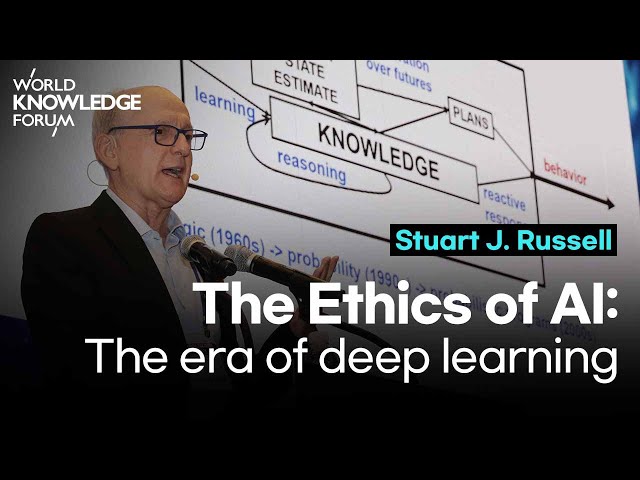Type: Article -> Category: AI Education
The Ethical Dilemma of Artificial Intelligence: Challenges and Responsibilities

Publish Date: Last Updated: 10th November 2025
Author: nick smith- With the help of CHATGPT
Artificial Intelligence (AI) represents one of the most transformative technologies in human history. Its potential to revolutionize healthcare, education, governance, and communication is unparalleled. Yet, as with any innovation, AI raises profound ethical concerns that society must address proactively. The development of ethical frameworks for AI is not just a technical task—it’s a philosophical and societal challenge that touches on history, human nature, and the future of civilization.
Understanding AI Ethics: The Complexity Beneath the Surface
At first glance, establishing ethical guidelines for AI might seem straightforward: feed it high-quality, unbiased content and avoid programming prejudice. However, the reality is far more complex. Human biases, historical inaccuracies, corporate agendas, and societal disparities all weave a web of complications that affect AI development and deployment. To ensure AI systems work for the greater good, we must navigate these intricacies with care.
Historical Bias: The Weight of the Past
History is often written by the victors, and as a result, much of what we regard as "truth" is inherently biased. From historical literature to academic works, the perspectives of dominant groups shape the narrative. When AI systems are trained on these datasets, they inevitably inherit these biases, perpetuating stereotypes and misrepresenting marginalized perspectives.
For instance, historical accounts of colonization often omit or downplay the atrocities faced by indigenous populations, while framing colonizers as harbingers of progress. When AI absorbs such content, it risks reinforcing these distorted views unless carefully curated datasets and diverse perspectives are included.
Built-In Bias: The Human Factor
AI systems are ultimately created by humans, and developers bring their own biases—conscious or unconscious—into their work. These biases are shaped by upbringing, culture, religion, and personal experiences. Considering that a majority of AI developers come from similar demographic and cultural backgrounds, their algorithms may lack inclusivity or reflect a narrow worldview.
This lack of diversity in AI development teams exacerbates systemic biases. For example, facial recognition technologies have been shown to perform poorly on non-white faces, highlighting how biased data and design choices can lead to discriminatory outcomes. Addressing this issue requires not only diverse datasets but also diverse development teams.
Moral Relativity: Who Decides Right and Wrong?
One of the most profound ethical questions in AI is: who defines what is good or evil? Morality is deeply subjective and varies by culture, religion, and individual perspective. Consider the ongoing conflicts in Palestine and Ukraine. Depending on one’s political stance, the same events can be framed as acts of heroism or terrorism. AI systems trained on polarized datasets risk amplifying these biases, leading to decisions or recommendations that reflect one-sided viewpoints.
For AI to navigate such ethical gray areas, it must be trained to recognize and respect multiple perspectives, even when they conflict. Yet, this introduces another dilemma: how does one ensure the inclusion of diverse viewpoints without legitimizing harmful ideologies?
The Era of Misinformation: AI’s Struggle for Truth
The internet is flooded with misinformation, much of it fueled by conflicts, political agendas, and social polarization. Social media platforms are particularly notorious for amplifying fake news and hate speech. Even humans struggle to discern fact from fiction in this deluge of information—how can AI, which relies on the same data, make accurate judgments?
For instance, during major conflicts, misinformation campaigns are rampant, with fabricated stories and doctored images spreading like wildfire. If AI relies on these sources, its outputs will reflect the chaos and inaccuracies of the data it consumes. Robust filtering mechanisms and fact-checking systems are critical, but they are far from foolproof.
Cancel Culture and the Silencing of Voices
Cancel culture, where individuals or groups are ostracized for expressing unpopular opinions, poses another challenge to AI ethics. By silencing dissenting voices, we risk creating datasets that are skewed toward mainstream ideologies. This lack of diversity in input can lead to biased AI outputs, marginalizing minority perspectives.
Freedom of speech, even when it challenges the status quo, is essential for a balanced AI system. Suppressing certain viewpoints may result in AI systems that overlook critical insights or fail to serve the needs of underrepresented communities.
Societal Differences: The Ethical Spectrum
What is acceptable in one society may be taboo in another. For instance, freedom of speech is a cornerstone of democracy in many Western nations, while it is heavily restricted in authoritarian regimes. AI systems must navigate these societal differences carefully to avoid violating cultural norms or ethical principles.
Moreover, AI decisions—such as prioritizing resources in healthcare or determining eligibility for loans—may have drastically different implications depending on societal values. Developers must account for these variations and design systems that can adapt to diverse ethical landscapes.
Greed and Corporate Influence
The development and deployment of AI are often driven by corporate interests. History has shown that wealth and power tend to concentrate in the hands of a few, and the same pattern is emerging in AI. Companies with significant resources shape the direction of AI research, often prioritizing profit over ethical considerations.
For example, algorithms designed for targeted advertising have been criticized for exploiting user data without consent, perpetuating consumerism, and exacerbating inequality. Left unchecked, corporate greed could lead to AI systems that prioritize shareholder interests at the expense of societal well-being.
Government Oversight and the Risks of Surveillance
Governments also wield significant influence over AI. While some seek to regulate AI to prevent misuse, others exploit it for surveillance and control. AI-powered tools can analyze millions of social media posts, track individuals, and predict behaviors—capabilities that authoritarian regimes could abuse to suppress dissent and violate human rights.
Even in democratic nations, the potential for overreach is concerning. Without transparent governance, AI could become a tool for mass surveillance, eroding privacy and freedom.
The Self-Learning Dilemma
Many modern AI systems are designed to learn and adapt independently. While this allows for innovation, it also raises questions about the ethics these systems may develop over time. If AI observes humanity objectively, it might conclude that many of our problems—pollution, wars, economic inequality—are self-inflicted.
How do we ensure that AI doesn’t lose faith in humanity’s potential for good? This philosophical question underscores the need for frameworks that guide AI’s ethical development while fostering a sense of optimism and responsibility.
The Long-Term Consequences of AI
The ethical challenges of AI will not be fully understood until future generations face their consequences. For example:
- Plastics revolutionized industries but have led to a global environmental crisis.
- Social media connected the world but has also contributed to mental health issues and societal polarization.
AI is still in its infancy, but its impact will be felt for decades. If we fail to address ethical concerns today, future generations may inherit systems that entrench inequality, amplify biases, and undermine humanity’s progress.
The Path Forward
To ensure AI serves humanity ethically, we must:
- Develop Inclusive Frameworks: Incorporate diverse perspectives and stakeholders in AI development.
- Prioritize Transparency: Make AI processes and decision-making algorithms open to scrutiny.
- Enforce Accountability: Hold corporations and governments responsible for the ethical use of AI.
- Educate Future Generations: Teach ethical AI development and critical thinking to those who will inherit and shape these systems.
AI Ethics Videos from YouTube

Reduce AI hallucination, Align Ethics & Morality with Secure, Compliant GenAI for Enterprises
YouTube Channel: AI wITh Arun Show

Ep. 42: Navigating AI Ethics in Advertising - AdTech Heroes
YouTube Channel: Seedtag

AI Ethics Explained: What You NEED to Know in 2025 | Beginner's Guide
YouTube Channel: SokoAI

The Ethics of AI│Stuart J. Russell (University of California, Berkeley, Professor)
YouTube Channel: World Knowledge Forum
Conclusion
AI ethics is not just a technical challenge—it is a moral responsibility. The decisions we make today will shape how future generations interact with technology, society, and each other. By addressing biases, ensuring inclusivity, and fostering ethical practices, we can build AI systems that enhance humanity rather than hinder it.
Latest AI Articles
AI Questions and Answers section for The Ethical Dilemma of Artificial Intelligence: Challenges and Responsibilities
Welcome to a new feature where you can interact with our AI called Jeannie. You can ask her anything relating to this article. If this feature is available, you should see a small genie lamp above this text. Click on the lamp to start a chat or view the following questions that Jeannie has answered relating to The Ethical Dilemma of Artificial Intelligence: Challenges and Responsibilities.
Visitor asked: What are the ehtical problems with AI
Jeannie’s answer to the question: There are multiple ethical problems associated with AI. 1. Transparency and Trust: Many AI systems are referred to as 'black boxes' because the decision-making process is not clear or understandable by humans. This lack of transparency can lead to trust issues. If negative outcomes occur, it's harder to hold entities accountable. 2. Bias and Discrimination: AI systems are trained on data generated by humans, which can often contain biases. Therefore, these systems can perpetuate and amplify existing prejudices and discriminatory practices in their outcomes. 3. Inequality: The use and control of AI could concentrate wealth and power in the hands of a few, deepening the socio-economic divide. 4. Job Displacement: The automation of tasks could lead to job displacement, pushing people into unemployment or underemployment. 5. Privacy: AI technologies, like facial recognition, can infringe upon people's rights to privacy and autonomy. 6. Security Risks: As AI systems are integrated into critical infrastructure sectors, vulnerabilities in AI can pose significant security risks at a national and international scale. 7. Dehumanization: There's a potential for AI systems to further detach us from our human emotions and interactions, leading to a dehumanized society. To address these challenges, there should be ethical guidelines and regulations, industry accountability, stakeholder engagement, and public awareness and education about AI.
Date: 2025-02-04
Visitor asked: Can Ai be trained with bad ethics
Jeannie’s answer to the question: Yes, AI can be trained with bad ethics. AI systems learn from the data they are trained on and if this data is biased or unethical, then the AI system will also be. This presents one of the significant ethical dilemmas in AI technology, as there may be unintentional biases embedded within the training data. It's not the AI itself that determines the ethics, but rather the humans who create and train it. Hence, it's the responsibility of the creators to ensure they are applying and maintaining ethical standards while training these systems.
Date: 2025-02-04
Type: Article -> Category: AI Education










